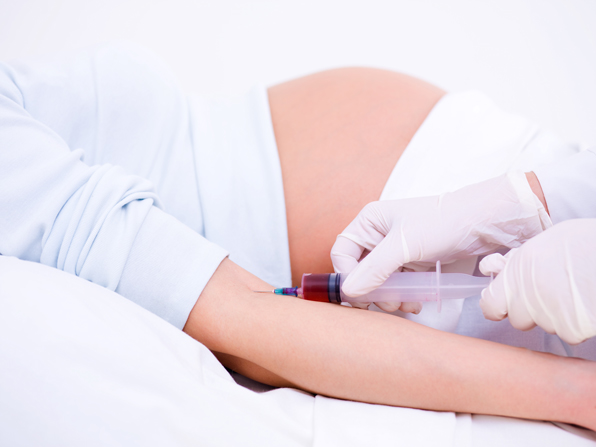Making the decision to terminate a pregnancy is usually not an easy one. In addition, what follows is another key choice: medical abortion or surgical abortion? What is the difference and what are the pros and cons of both? Let’s break it down.
Medical abortion vs surgical abortion: what’s the difference?
Medical abortion is when a pregnancy is terminated via medicines which prompt the body to miscarry. In medical abortion a woman takes two tablets at separate times. The first tablet (called mifepristone) blocks the essential pregnancy hormone progesterone, preventing the pregnancy from progressing and prompting it to break off from the uterine wall. The second tablet (named misoprostol) causes womb contractions that lead to natural miscarriage without surgery. The process is similar to an early spontaneous miscarriage – except obviously with medical abortion, a woman can be prepared and create a comfortable resting environment at home. Many women opt for medical abortion over surgical abortion because it is nonsurgical and non-invasive. Often, medical abortion is performed at the clinic, with pre-screening in person and tablets administered in person. However, recent changes in the law have allowed for medical abortion in the comfort of a woman’s own home.
Medical abortion pills by post are when the medicines are sent to you by mail and you take them at home at the allotted times. Here at The Gynae Centre, all patients who choose this option are seen by one of our sympathetic Consultants Gynaecologists (not a nurse) for a telephone consultation to review their medical history, taking the greatest care in preparing for your medical abortion. Following this, the medication will be sent to you in the post to take at the allotted times, and 24 hour telephone support is on hand for you for up to 4 weeks post-abortion, should you have any concerns or questions at all.
Surgical abortion can be performed one of three ways: Manual Vacuum Aspiration (MVA), Machine Aspiration (MA), or Dilation and Evacuation (D&E – the most invasive of all methods, generally reserved for abortions that take place after 15 weeks). Manual Vacuum Aspiration (MVA) is a gentle procedure that can be done under local anaesthesia (with or without sedation) and it is less invasive than Manual Aspiration. MVA is performed with a small handheld tube vacuum inserted through the cervix to the entrance of the uterus, which generates a gentle suction process. You can opt for MVA between 6-15 weeks of pregnancy. However Machine Aspiration (which is used in many hospitals) is less gentle, generating a stronger vacuum pressure and causing significant pain and discomfort. Here at The Gynae Centre, we use Manual Vacuum Aspiration for the comfort of our patients. And if you wish to be asleep, we can administer sedation.
When can I have medical abortion and when do I need surgical abortion?
Medical abortion is usually the preferred option if you are 4-10 weeks pregnant (the timeframe is the same for medical abortion pills by post). While medical abortion in hospital is technically an option for pregnancies further along, the process becomes more painful in later pregnancy and we don’t recommend it. From 10 weeks, we suggest surgical abortion. In the UK, the law allows surgical abortion to be carried out with pregnancies up to 24 weeks.
How safe is abortion? Are there any risks and side effects of abortion?
Abortion is generally a very safe procedure with few associated risks and side effects. Actually as the Royal College of Obstetricians and Gynaecologists assert, so long as it is delivered in line with best practice, an abortion (whether surgical or medical) is statistically safer than carrying on through pregnancy and giving birth. And because medical abortion requires no anaesthetic and is non-invasive, most patients and doctors prefer it for early pregnancy termination.
Dr Albert Aka, Consultant Gynaecologist at The Gynae Centre, explains: “There is no evidence whatsoever to suggest that an uncomplicated abortion affects your fertility in the future, or health in general. However, every medical procedure – without exception – carries some risk of complications and side effects. With medical abortion, you are likely to experience some pain when the pregnancy passes, which women tend to say is worse than a heavy period. We advise taking mild analgesics like ibuprofen and paracetamol for this. In the few days that follow, you are likely to experience some cramping (much like period pain), but this should get milder as the days pass and most women find hot water bottles and mild painkillers helpful. Some women (about 10%) find the abortion medicines give them nausea, diarrhoea and vomiting.”
With both medical abortion and surgical abortion, there is a small chance you will need another procedure to complete the abortion. Aside from this, the very small risks associated with medical abortion include pelvic or uterine infection, haemorrhage or unrecognised ectopic pregnancy. With surgical abortion, the very small risks (about 1 in 1000) include heavy bleeding or uterine damage.
Here at The Gynae Centre, we pride ourselves on rigorously safeguarding your health and our consultants are among the UK’s leading gynaecologists. We are with you every step of the way through aftercare and are on hand 24 hours a day through a special support line, should you require assistance, advice or support.
What is abortion aftercare like?
With medical abortion via clinic or medical abortion pills by post, you will probably want to rest for at least the day you take your second pill and pass the pregnancy, because you are likely to experience cramping. You may experience some milder cramping in the few days following, and bleeding which you should use sanitary pads for, rather than tampons. When you feel comfortable, you can normally resume your regular activities such as taking a bath or a shower and exercising. But if in doubt about an activity, always ask. Here at The Gynae Centre we provide a 24 hour aftercare support line for 4 weeks post-abortion, to give our patients maximum support and reassurance.
After surgical abortion you may experience some cramping (similar to menstrual pain) from several days to two weeks which you can control with mild analgesics like paracetamol. You will experience some bleeding which you should use sanitary pads for (not tampons), and you should change the pads every couple of hours or so. The bleeding should taper off but you may still experience some spotting or light bleeding for up to four weeks. You should not do strenuous exercise and heavy lifting for at least a few days after surgical abortion, and avoid sexual intercourse for two to three weeks.
Here at The Gynae Centre we advise to follow-up with a pregnancy test three weeks post-abortion, to ensure the procedure was completely successful. If, in the highly unlikely event of the procedure being unsuccessful or there being any tissue remaining, we are available to resolve the problem with state-of-the-art medical equipment and leading gynaecological experts.
How can I ensure my abortion is safe and successful?
The best way to ensure safety and success is to avoid delay when you have decided on abortion – the further along in the pregnancy you are, the greater the risk of a complication. Secondly, it is important to choose a good quality clinic that operates according to best practice, taking your medical history thoroughly prior to any procedure and following up diligently with you afterwards.
Here at The Gynae Centre, your safety and wellbeing are of paramount importance to us. Our professionals are at the top of their field, and our equipment and surroundings are state of the art. Whether you are having medical abortion in our central London clinic, medical abortion pills by post, or surgical abortion, we will safeguard your wellbeing with the utmost care.
All our abortion care is consultant-led. If you are having a medical abortion in the clinic, you will have a face to face screening with an expert Consultant Gynaecologist, plus a pre-abortion ultrasound scan and screening for chlamydia and a haemoglobin check.
If you are having medical abortion pills by post, you will undergo thorough medical screening over the phone with an expert Consultant Gynaecologist (not a nurse) who will take your medical history, talk you through the process, and assist with any concerns you have.
We have extensive support procedures in place, including a 24 hour support line for any questions or concerns you may have for up to 4 weeks following your abortion, guiding you through aftercare.
Through our extensive experience of helping women through this time, we do everything we can to make the process pass as smoothly as can be expected. To find out how we can help, call us on 020 7580 8090 or book an appointment online.






